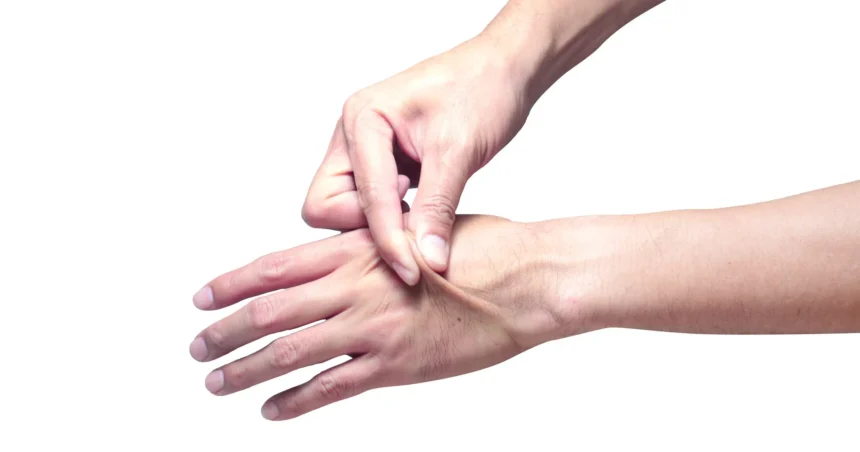Decoding skin turgor, a simple yet effective test frequently utilized to identify dehydration, has garnered attention for its accessibility and reliability. The test involves gently pinching the skin on the back of the hand, forearm, or abdomen and observing how quickly it returns to its normal position. Dr. Swetha Sridhar, a consultant dermatologist and assistant professor at Bowring and Lady Curzon Hospital, sheds light on the significance of this method in assessing hydration levels.
Skin turgor, the skin’s ability to return to its original shape after being pinched, serves as a reliable indicator of hydration status. When adequately hydrated, the skin possesses optimal elasticity and promptly snaps back into place upon release. Conversely, dehydration diminishes skin turgor, resulting in delayed recoil and the appearance of a “tenting” effect.
Dr. Sridhar underscores the importance of understanding skin turgor as a vital tool for assessing hydration levels, particularly in clinical settings. Healthcare professionals often rely on this simple test to evaluate patients’ fluid balance and identify signs of dehydration. In addition to pinching the skin, medical professionals may also assess other clinical indicators such as dry mouth, sunken eyes, and decreased urine output to confirm dehydration.
While skin turgor serves as a useful initial assessment tool for dehydration, Dr. Sridhar emphasizes the need for comprehensive evaluation in clinical practice. Factors such as age, skin elasticity, and underlying medical conditions can influence the accuracy of the test. Therefore, healthcare providers may employ additional diagnostic measures, including laboratory tests and physical examinations, to confirm dehydration and determine its severity.
In addition to clinical applications, understanding skin turgor can empower individuals to monitor their hydration status proactively. By familiarizing themselves with the test and regularly assessing their skin elasticity, individuals can take preventive measures to maintain adequate hydration levels. Dr. Sridhar advises staying hydrated by consuming sufficient fluids throughout the day, particularly during hot weather or periods of increased physical activity.
Skin turgor serves as a valuable tool for detecting dehydration and assessing hydration status. Dr. Sridhar’s insights underscore the importance of this simple yet informative test in both clinical practice and personal health management. By incorporating skin turgor assessment into routine healthcare practices, individuals and healthcare providers alike can promote hydration and overall well-being.
